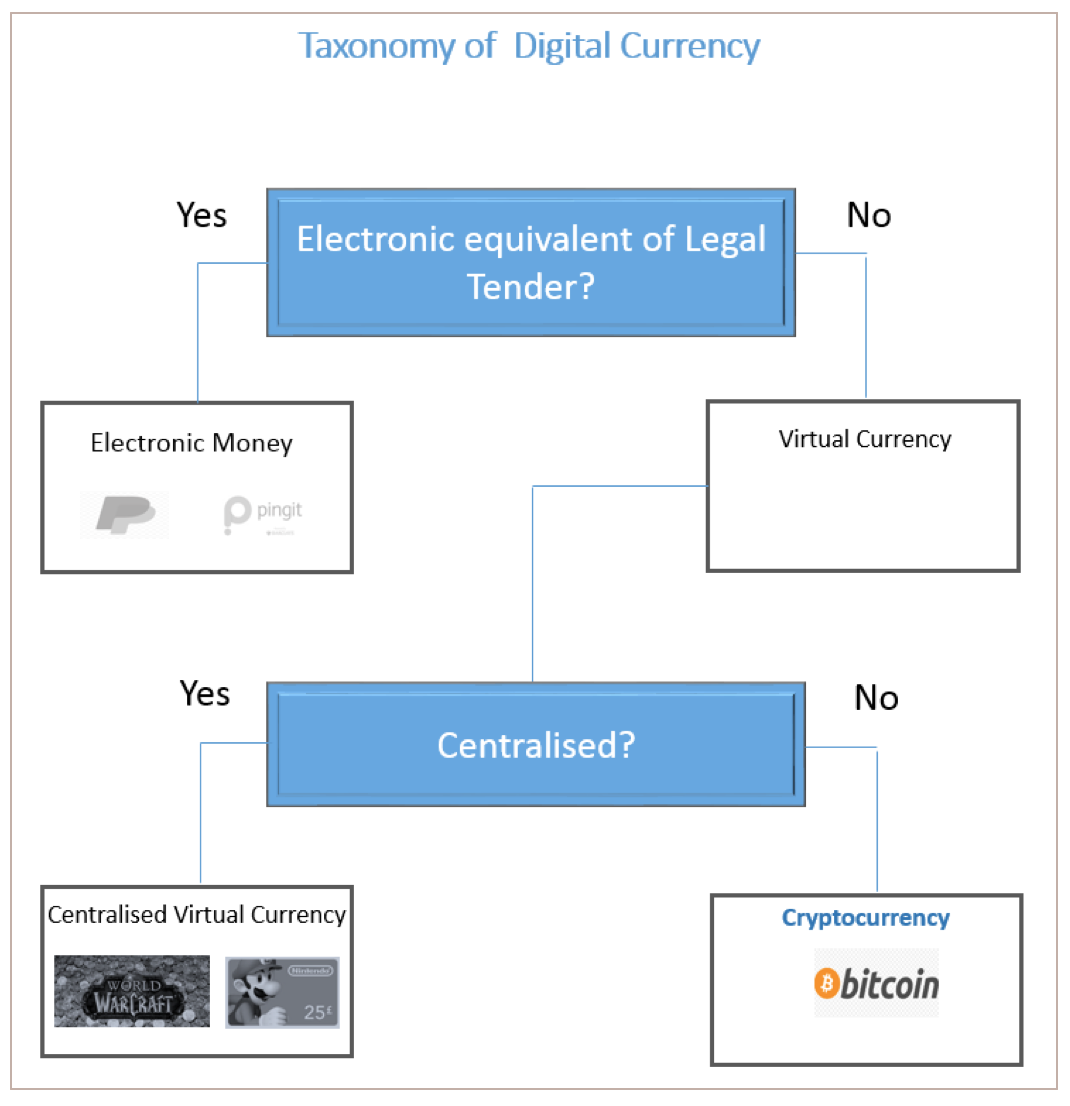2 What is Digital Currency?
2.1 Let’s Get the terms Right
If you were to look up the term ‘cryptocurrency’ you would get something like or similar to the following definition: A digital or virtual currency, that uses cryptographic encryption techniques to generate units of the currency and verify transactions. It is important to add however, that many use the term ‘digital currency’ interchangeably with ‘cryptocurrency’. Why it is important to make a distinction will be covered later, but first let’s substantiate the claim that the terms are used interchangeably.
If you were to type ‘digital currency’ into Google’s news search you would most likely receive articles about cryptocurrency and in particular Bitcoin. As can be seen below. I’ve taken the first 20 articles from google news (week of 20th feb), and taken their text using it in a word matrix. As can be seen from the matrix below ‘Bitcoin’ is the most popular topic associated with the term ‘digital’.

2.2 Advancing a clear definition
It would be very easy for anyone interested in digital currency right now to focus on Bitcoin which is actually only a tiny element of what is covered by the term ‘digital currency’. To define cryptocurrency well we first need to understand what separates it from other digital currencies.
Digital Currency as a broad term can contain anything that represents value in a digital manner. Digital currency can contain firstly what we would call electronic ‘money’, money that is simply a digital representation of government issued fiat currency. Fiat currency is government backed, so whilst it has no intrinsic value, i.e it is not tied to a commodity such as gold, it is considered legal tender.
Digital currency can also cover virtual currency – electronic currency that it is not considered legal tender. Virtual currencies are controlled and created by their developers, with value being appreciated in a specific community. A prime example would be Nintendo points, users can either earn units of currency or points by completing game challenges or by exchanging fiat currency for them. Once bought, Nintendo points are only useful in the Nintendo ecosphere and seldom used elsewhere.
With the above understood, the final area of digital currency to examine is Cryptocurrency – a decentralised virtual currency. It is a virtual currency because its units are not considered legal tender, but is separate from other virtual currencies because its units are created and handled without any overseer required.
The international monetary fund and the European bank have only recently put together a taxonomy of digital currency. A visual representation of how I have defined terms has been provided below.
2.2.1 Taxonomy of Digital Currency

2.2.2 Digital currency before Bitcoin
If we understand that Digital currency is just an electronic representation of any asset, it is useful to point out and understand that digital currency can be traced back to the 1960s. Here are the main highlights I’ve found from research:
